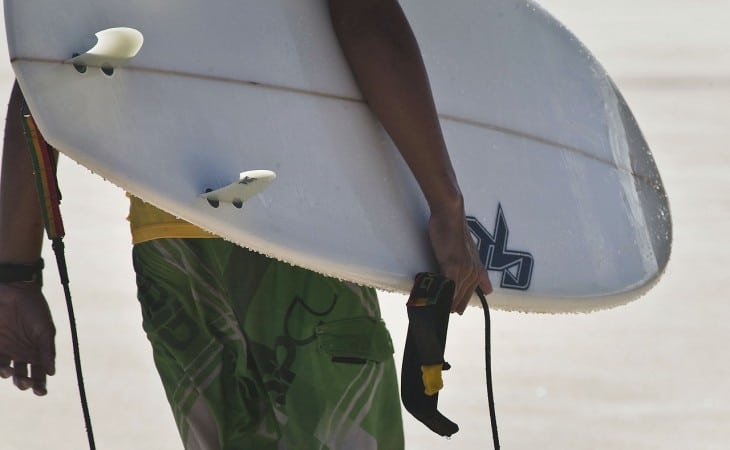Goals are the cornerstones of success. Failing to plan is planning to fail.
In the series on discovering purpose and direction, we highlighted that it is everyone’s goal to maximise the value they get out of life and this is primarily done by maximising fulfilment. Once you know what you want in life, you need to plan how you are going to get it. Acting without a plan is likely to be an inefficient use of your time — time that could be better spent elsewhere.
What Do You Want to Have, Be, and Do?
Everyone has something in their mind that they want to have, or some activity they want to do, or some ideal personality/image/person they want to be. It is important that you realise that you are much more likely to achieve those desires if you set a plan of action and begin acting. Acting without a plan is like playing a game of basketball and throwing the ball in a random direction and hoping you get points. There’s a chance that it’ll work but you’re very much better off focussing your efforts on the basketball ring if you want success.
Setting Goals
Let’s assume that you worked through the purpose and direction series and have ended up with a mission statement. Mine was:
My purpose is to continuously self-improve, learn all I can, connect with others, and bring out the best in the world.
So what should you be doing today in order to live your purpose? First, you need to break down the statement into its parts. In my case, they were:
- To experience life and all it has to offer;
- To learn all I can;
- To connect with the world and everyone in it;
- To improve myself, to be the best I can be, to test my limits and then break them. To grow, evolve and optimise; and
- To help others do the same, to share my experiences with them, to share my journey, to bring out the best in the world.
Next, list the goals you would need to achieve in order to be fulfilling the above parts of your purpose. For example:
- Travel, explore, be in the present and actually notice each experience, try new foods and drinks, try new activities, enjoy everything
- Read books, watch educational YouTube videos or TED talks, take online courses like on Coursera, read how-to’s online, research topics I am interested in, keep an eye out for new topics to delve into, always be open to learning new concepts and activities
- Be social. Keep in touch with family and friends, meet new people, take part in global activities, have genuine relationships
- Grow as an individual in any way possible: increase physical abilities like strength and speed; increase mental abilities like memory, speed of processing, quality of processing, rationality, and knowledge; physical status like physical age, healthy figure, prevention of disease and illness, and optimum nutrition and exercise; and many more ways to be a better sentient being.
- Spread knowledge of how to live the life you want to live, teach others, share experiences with people, empathise and converse with people; and to make the world a better place by either helping to solve its many problems or by improving it beyond what it is currently.
Thirdly, what is stopping you from achieving the above goals? Could you start working on them directly? Or do they have prerequisite goals that must be completed first before you can work towards them?
Continuing with the examples above, there is no reason why you can’t work on most of them right now. However, some of them require money and all of them require time. Since time and money are limited resources, spending all of your time working to achieve the goals means you won’t have any income coming in and your savings will quickly disappear. Soon enough, you would have to stop living your purpose in order to keep a roof over your head.
When Money Gets in the Way
The above examples of goals to achieve do not include a reference to working. In an ideal world you wouldn’t need to work for an income, however, living expenses will always exist: you need somewhere to live, food to eat, access to health, means of transport, let alone money for the more enjoyable things in life. If your expenses are greater than your income then you’re going backwards. This doesn’t mean you can’t achieve your goals but there will need to be some compromise between income generation and living the life you want to live.
Work-Life Balance
Your optimum work-life balance might depend on your perception of time, or on your mission statement and how you want to live. For me, I want to be in a position where I don’t need to work more than two days a week and I have enough income to do the things I want to do. However, I don’t want to sacrifice my current lifestyle in order to get there, like I would be if I became an investment banker and worked 80+ hour weeks. I am content working 50-hour weeks until I get to my ideal financial position, but preferably not more (consistently).
You might not want to work 50-hour weeks in order to get to a position of only having to work two days a week. Perhaps you want to work the absolute minimum hours possible in order for you to live your purpose right now.
Check out tomorrow’s post on Lifestyle Design for more on this topic.
Incorporating Financial and Time Goals
You need to add goals whose achievement would give you both the time and money to pursue your more important goals (listed above). For me, these are something like:
- Develop and optimise a routine including sleep, gym, eating, work, and social life. Reduce procrastination and wasteful uses of time. Maximise productive use of time.
- Work part-time to fund my current lifestyle and use the remaining time in a 50-hour week to build a business. Grow the business to the point where it brings in my ideal yearly salary.
- Invest surplus funds into shares, property, or other businesses.
- Thin the business out by removing non-critical functions, increasing productivity and efficiency, systematising processes, and hiring a small team to manage the business with me. Get it to the point where I can work two days a week or less whilst maintaining my ideal salary.
The Bigger Picture
There are a lot of things you want to have, do, and be, and you have limited time and money to achieve them. Having your goals set out allows you to allocate your time towards each of them in order of importance, allowing you to live your life to the fullest sooner and for longer.
See this week’s post on how to break down goals into easy tasks. There we will turn your goals into actions you can take today to ensure you are making progress down the direction you want to take in life.





